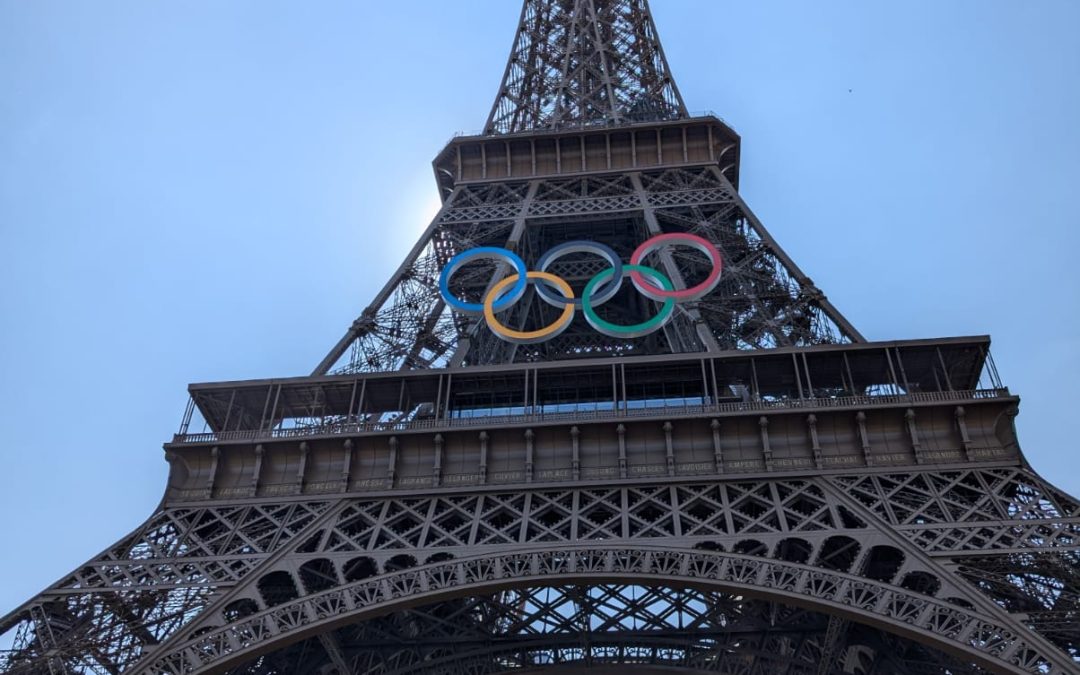The Olympics have captivated audiences through the ages with outstanding sportsmanship, but equally outstanding storytelling and branding. The Paris Olympics 2024 has been no different.
The teams have demonstrated the world’s best athletic ability, speckled with controversy and having to put out fires – both literally and metaphorically. The Olympic PR teams have had their work cut out for them. Let’s look at the good PR and how they’ve handled crisis communications:
Good PR: Showcasing Strengths
Clear objectives: Environmental and Social Responsibility
The Paris 2024 Olympics set clear goals to be the greenest in history, addressing previous concerns about the environmental impact of such large-scale events. Paris pledged to halve the carbon footprint of previous games by utilising renewable energy, public transport links, existing infrastructure and rented equipment. The organisers aligned their efforts with global environmental priorities and the Paris Agreement on climate change, a legacy that they are hoping will continue into future games.
Trust and credibility: Gender Parity and Inclusivity
The achievement of gender parity for the first time in Olympic history was pivotal to building trust and credibility in the Olympic games. In the 1900 Paris Games, women made up only 2.2% of the participants. In 2024, the International Olympic Committee (IOC) has set up several initiatives on their journey to equality, from a grassroots level to equal TV coverage and medal opportunities. The IOC claims a commitment to ‘advancing gender equality’ and fostering an inclusive and fair environment for all. It has publicised and encouraged social media conversations through the hashtag #GenderEqualOlympics.
Authenticity and Storytelling: Simone Biles
Simone Biles is an international success for both incomparable gymnastics as well as a masterclass in personal branding and authentic storytelling. Biles’ authenticity and openness resonates with her audience. After retiring from Tokyo Olympics 2021 she openly discussed her mental health and her struggles, claiming her own narrative after the media called her ‘weak’ and ‘soft’. This year she partnered with Powerade for the “Pause is Power” campaign to address the importance of taking a break and how “it’s not an act of weakness, but rather an act of courage and power” according to Coca-Cola’s Matrona Filippou.
Engagement and Emotional Connection: GB Athletes’ Roots
The PR campaign highlighting the roots and community connections of GB athletes aimed to create emotional bonds between the athletes and supporters. This approach made the athletes relatable, fostering national pride and deeper engagement from the audience.
Crisis PR: Managing Challenges
Monitoring and Response: Imane Khelif’s Boxing Controversy
The controversy surrounding Imane Khelif and Lin Yu-ting’s gender and the backlash on social media required a swift and decisive response. The IOC and Paris 2024 Boxing Unit’s statement reaffirming the boxers’ eligibility showcased their readiness to defend athletes and address misinformation. The controversy was fuelled by the fact that a different organisation, the International Boxing Association, had deemed Khelif and Yu-ting not eligible to compete a year ago due to unspecified gender tests. Both boxers went on to win gold medals in their categories, with Khelif stating ‘I am a woman’ at her post-fight press conference.
Transparency: The Seine’s Pollution Incident
After spending €1.4billion to clean the Siene heavy rains caused pollution in the Seine, threatening the triathlon. The IOC PR team had to navigate a potential crisis. Their transparent communication about the situation, coupled with the decision to delay and only proceed after safety assessments, demonstrated a commitment to transparency. Though the incident was less than ideal, the honesty tried to build trust – slightly belied by one athlete then getting E.coli after her triathlon in the river.
Proactive Crisis Management: Security Threats
Amidst security concerns and protests related to pension reforms and the Russia-Ukraine conflict, PR teams worked proactively to reassure the public and athletes. By addressing these issues head-on and reinforcing the safety measures in place, they managed to control the narrative and prevent widespread panic.
Conclusion
The Paris 2024 Olympics balanced positive storytelling with effective crisis communication. The IOC PR teams successfully highlighted the event’s strengths—environmental responsibility, gender parity and authentic athlete stories—while swiftly addressing issues, from weather disruptions to gender controversies and security threats. This comprehensive approach to PR helped sustain the Olympic brand’s reputation, despite the inevitable challenges that come with hosting such a global event.
Read our next blog on: How to be seen and heard when news avoidance is increasing (bclear.co.uk)


